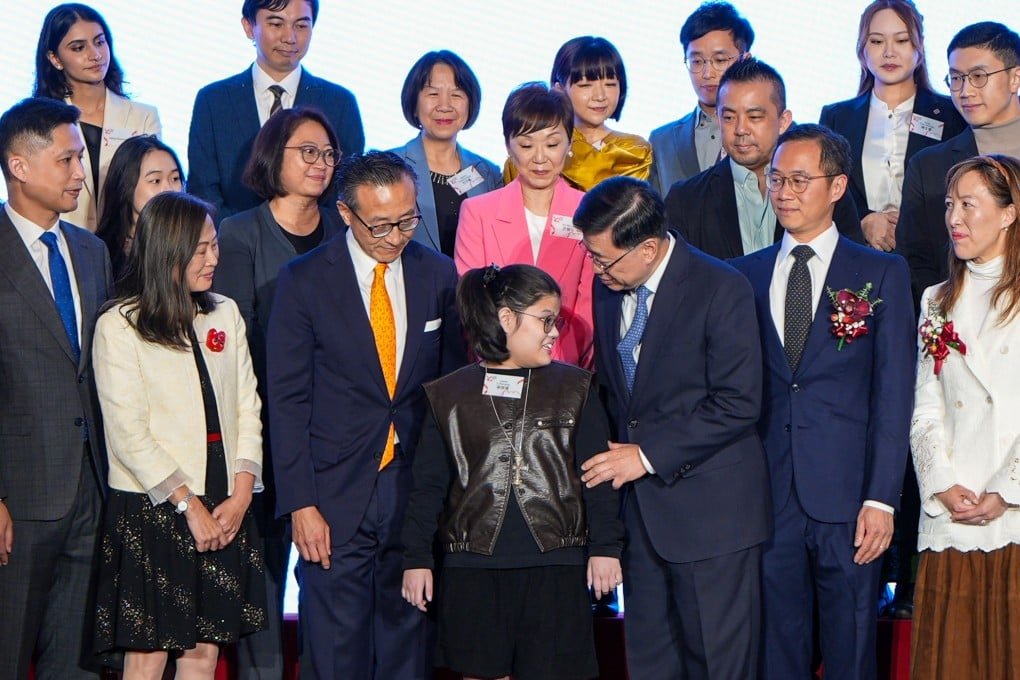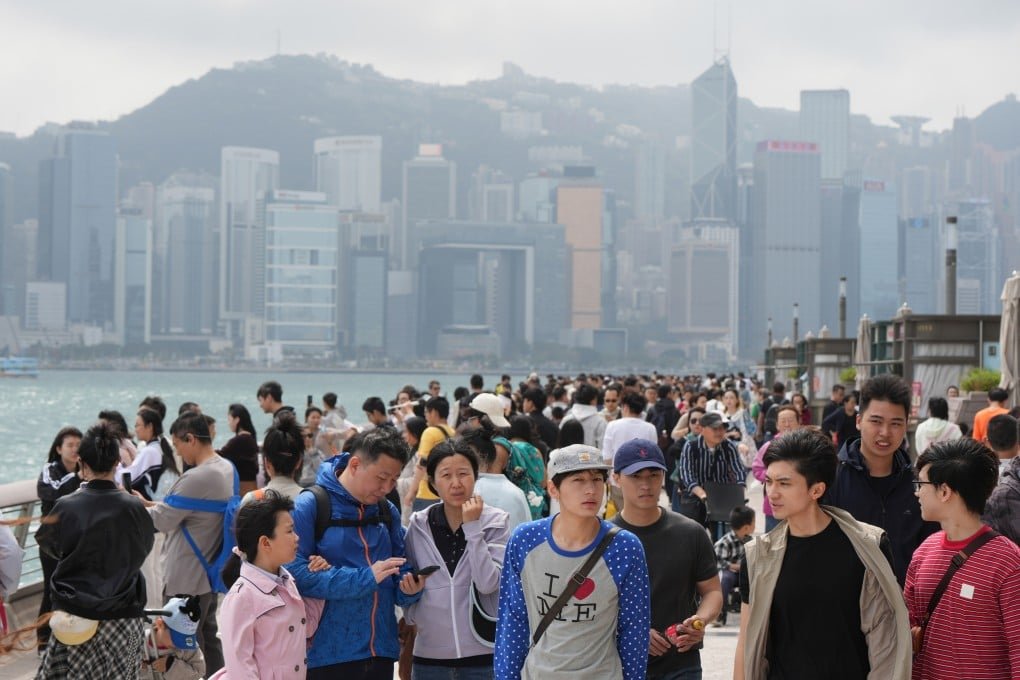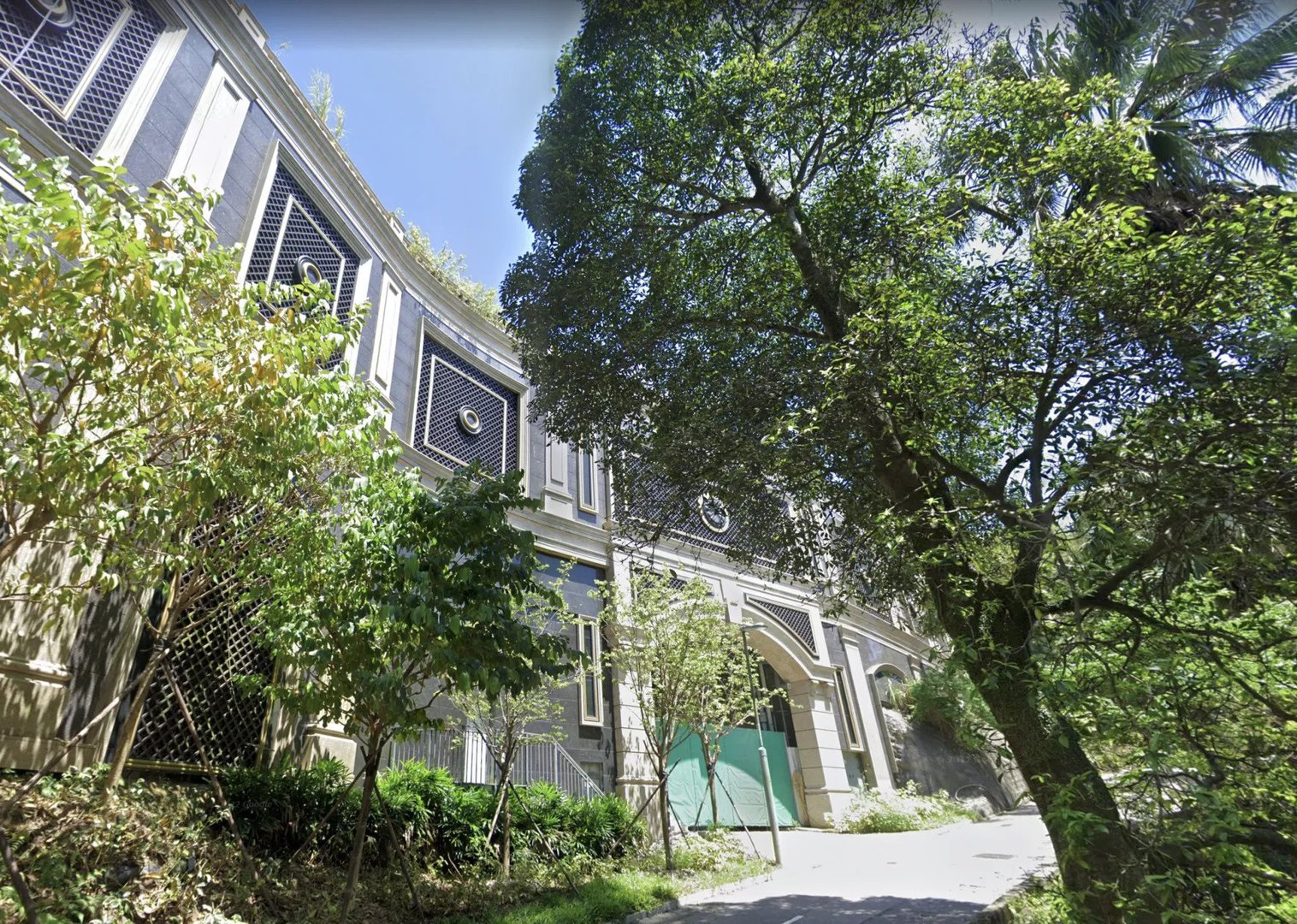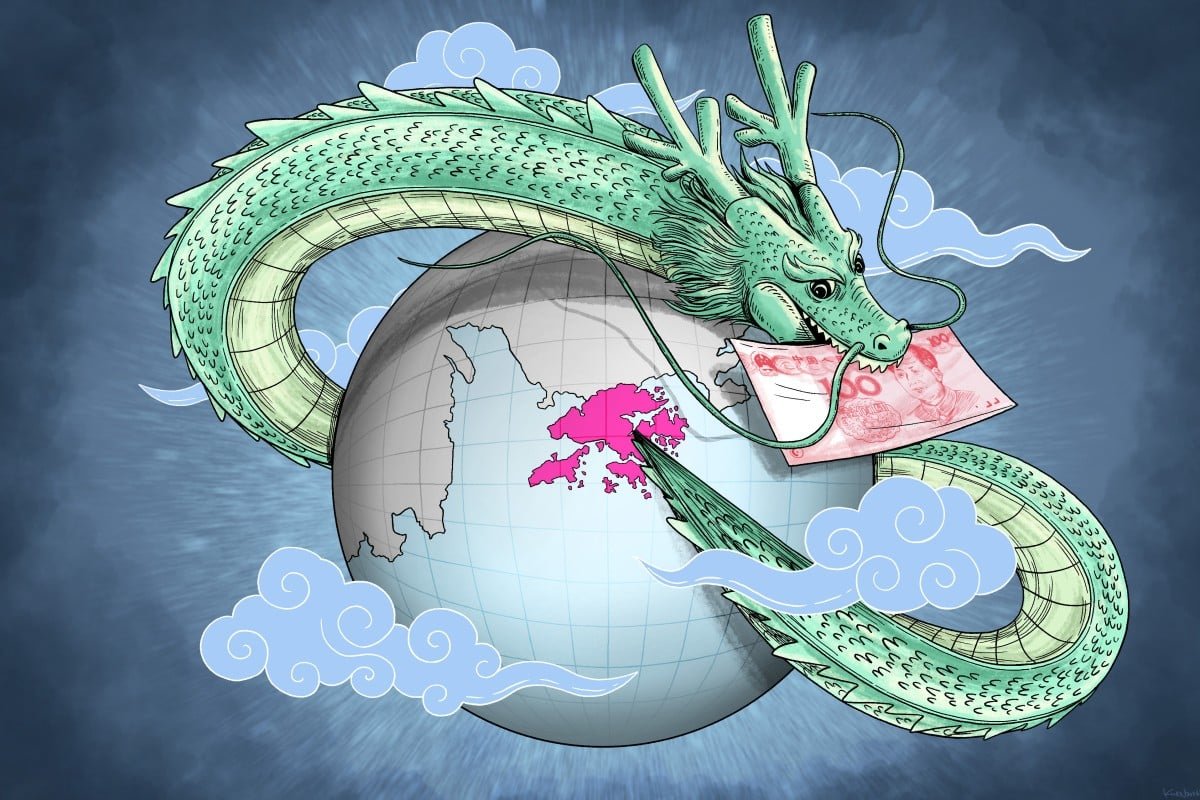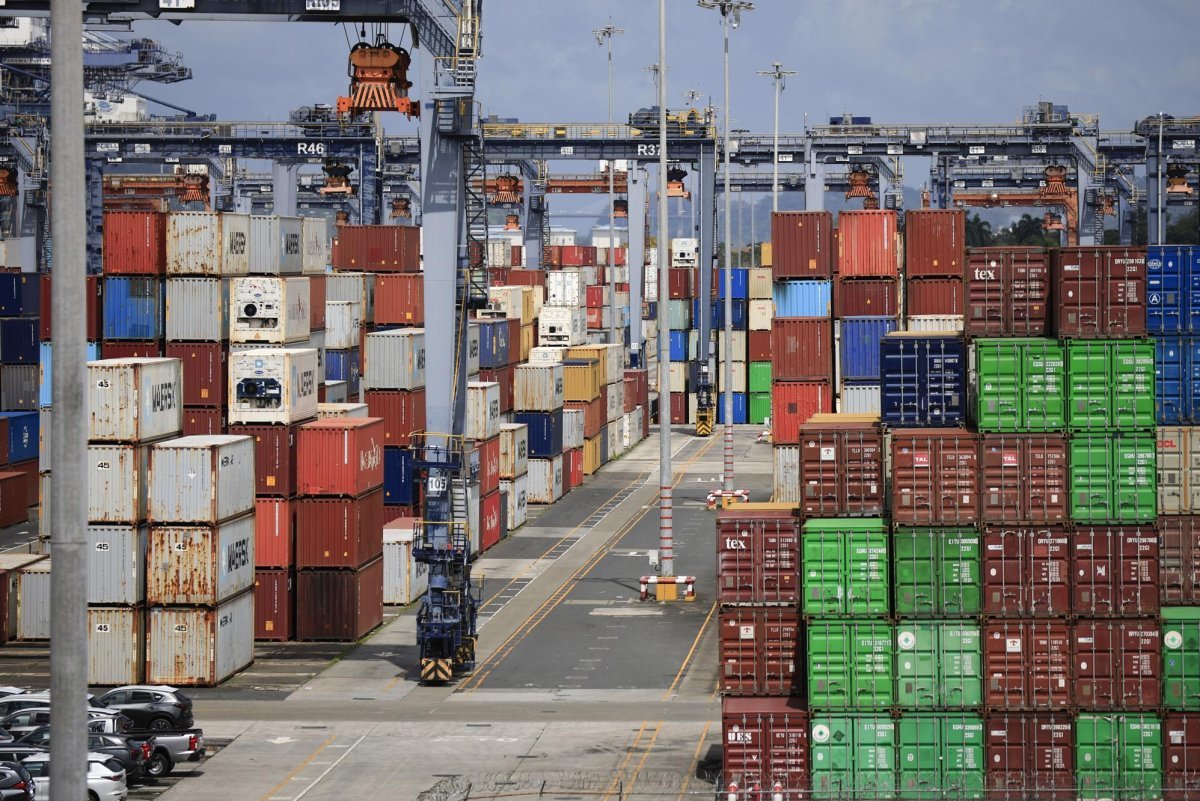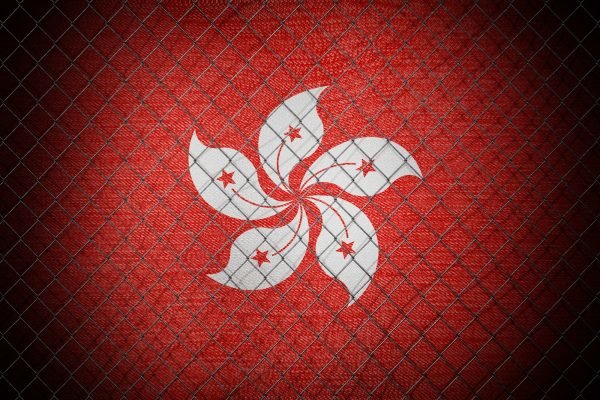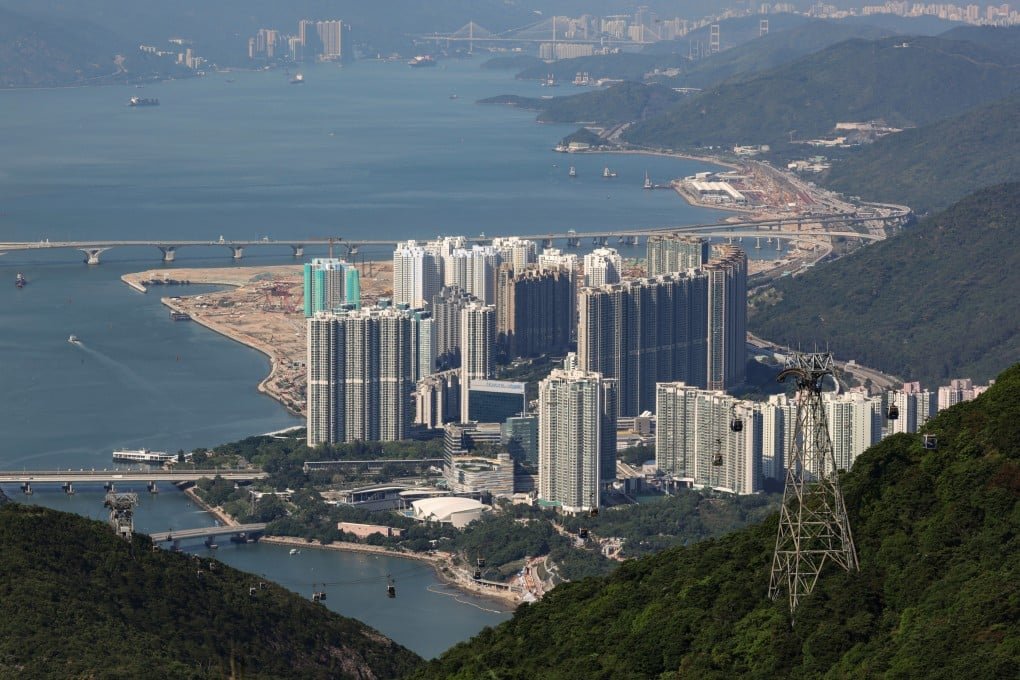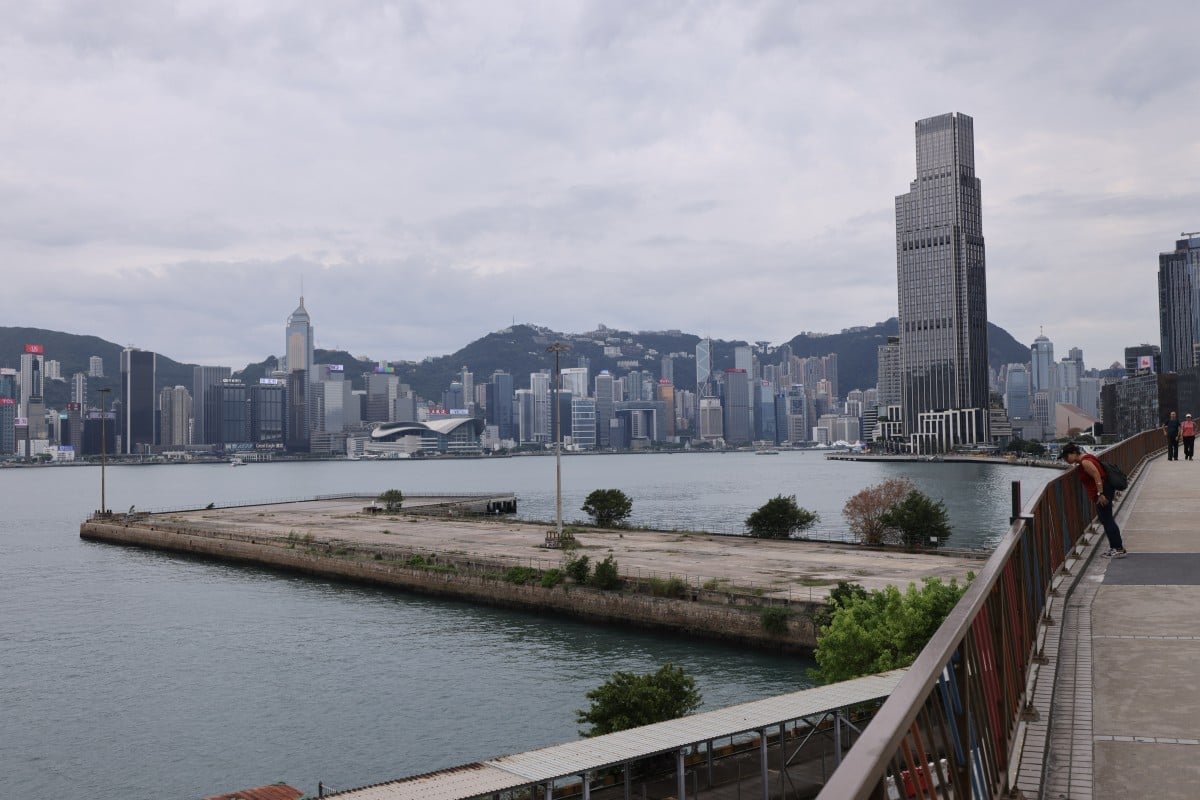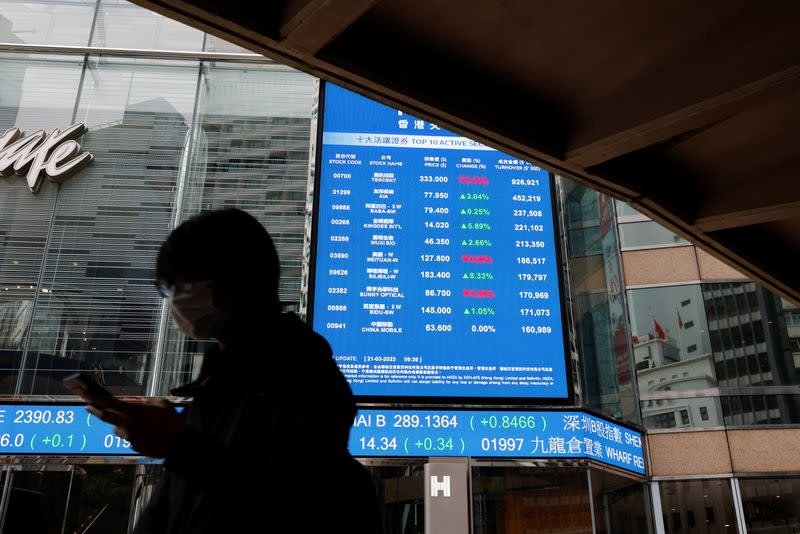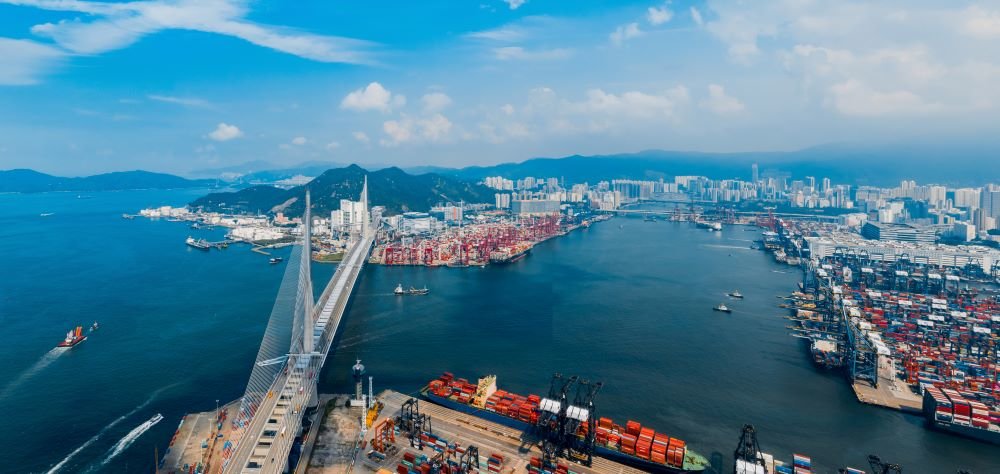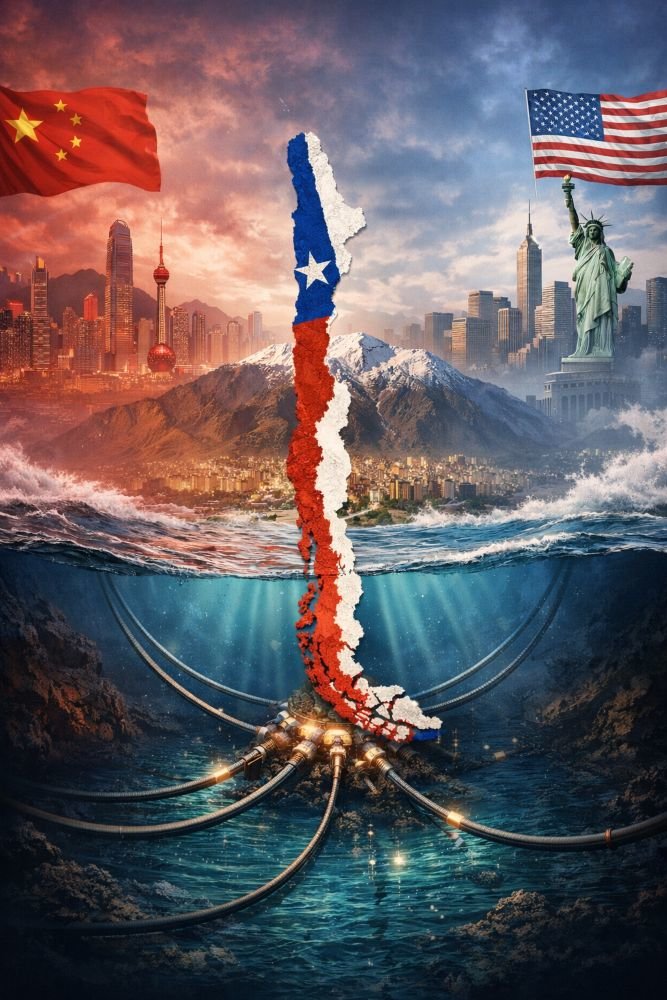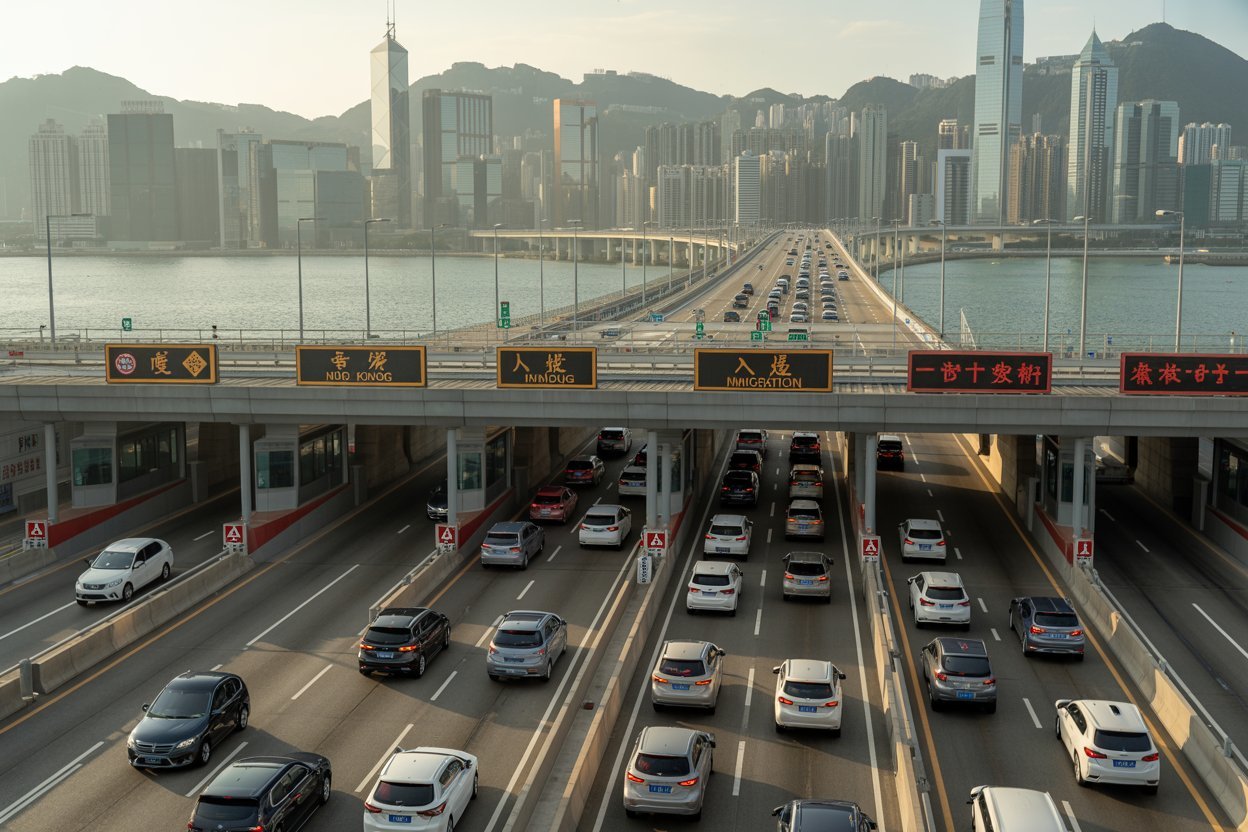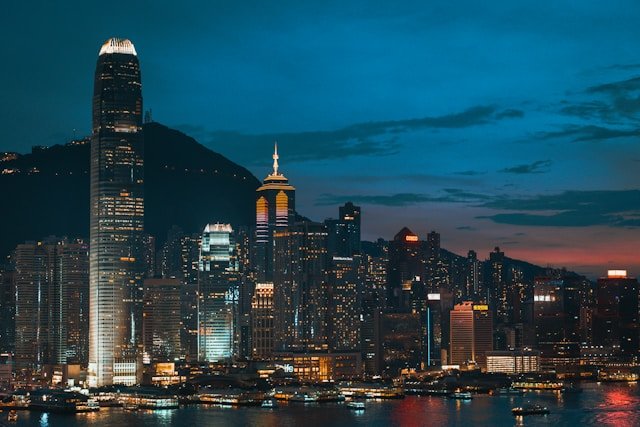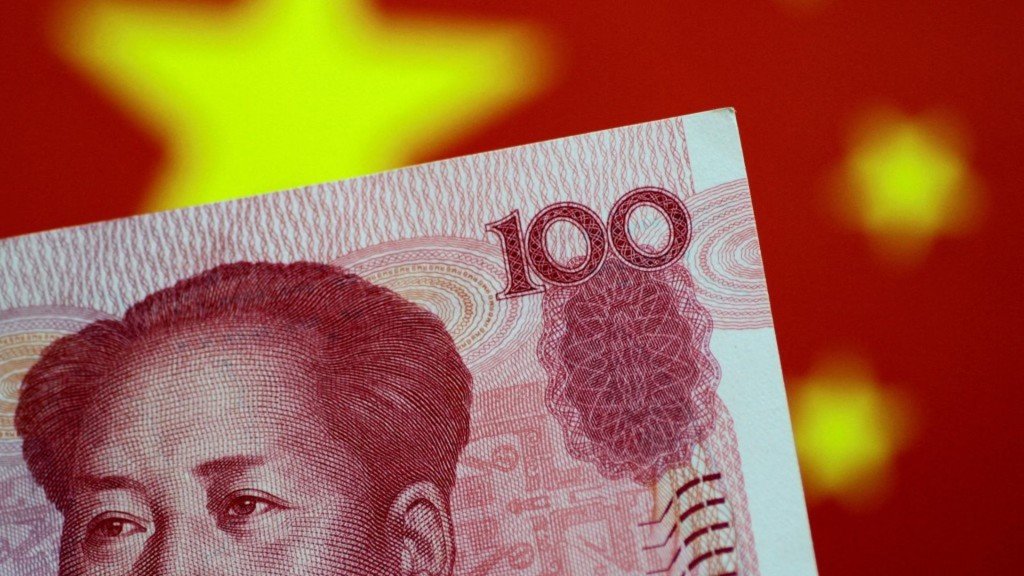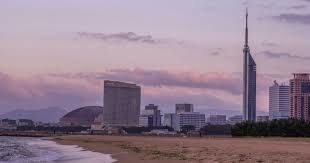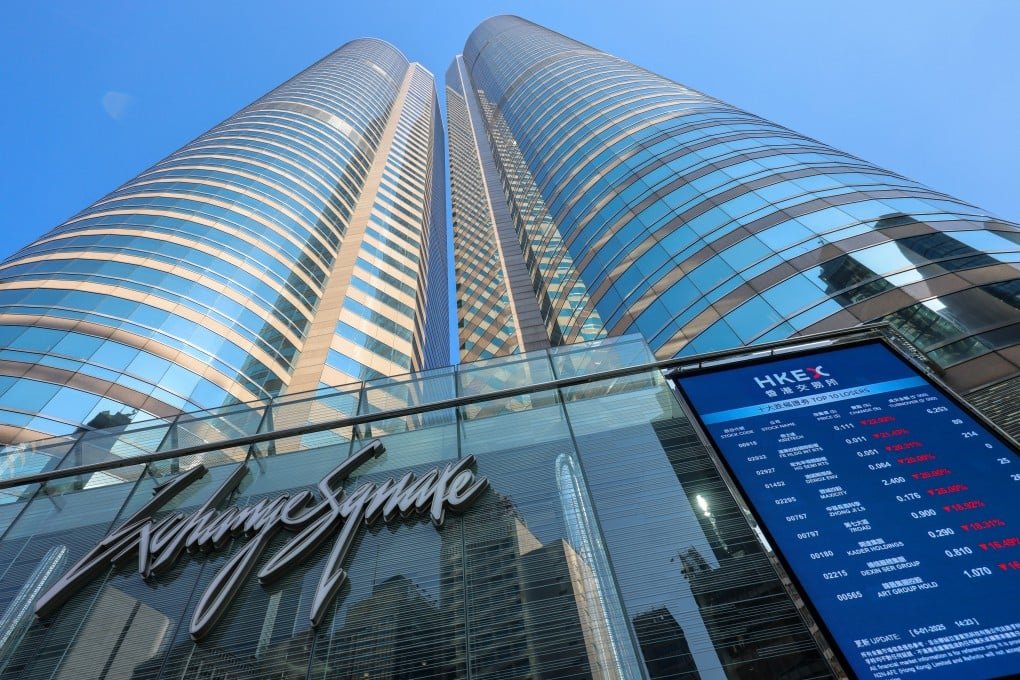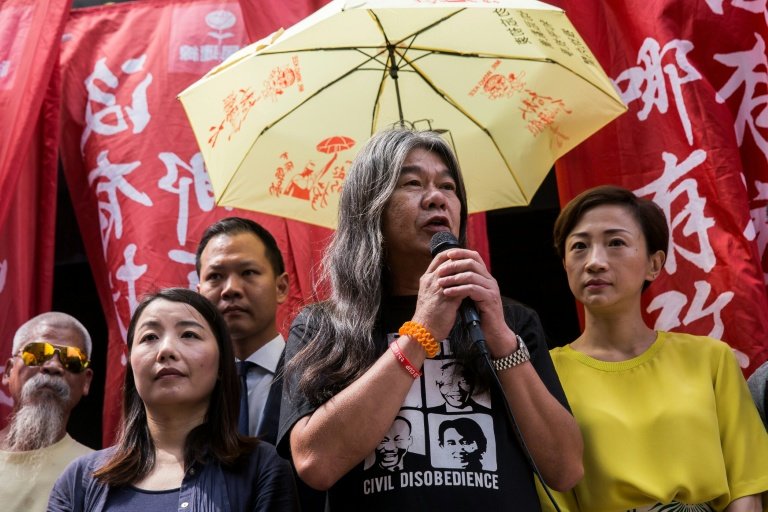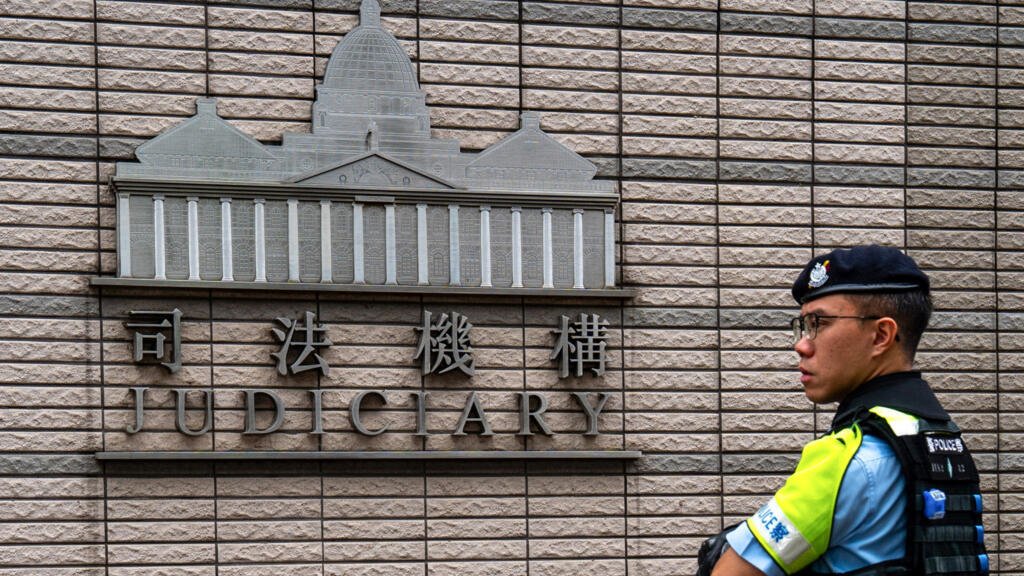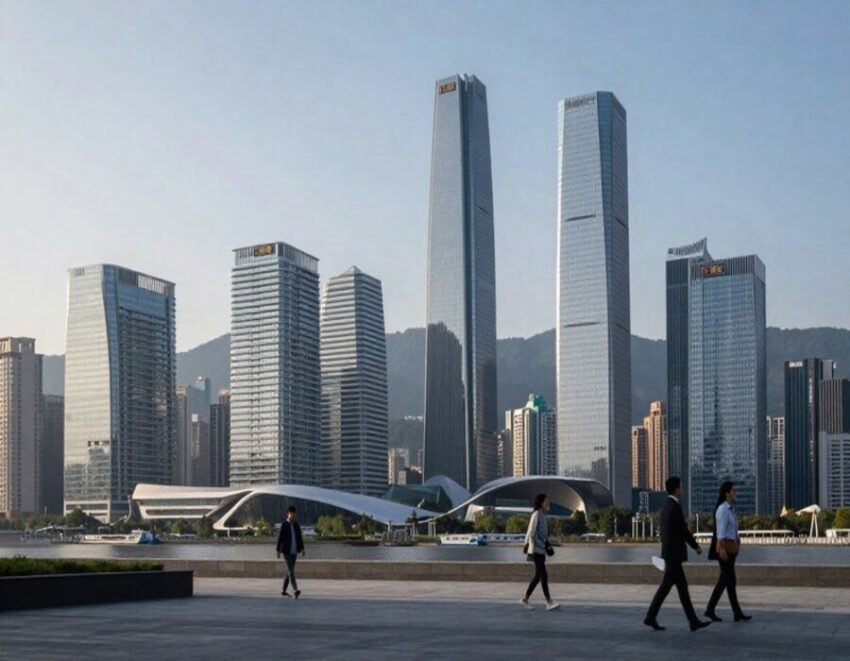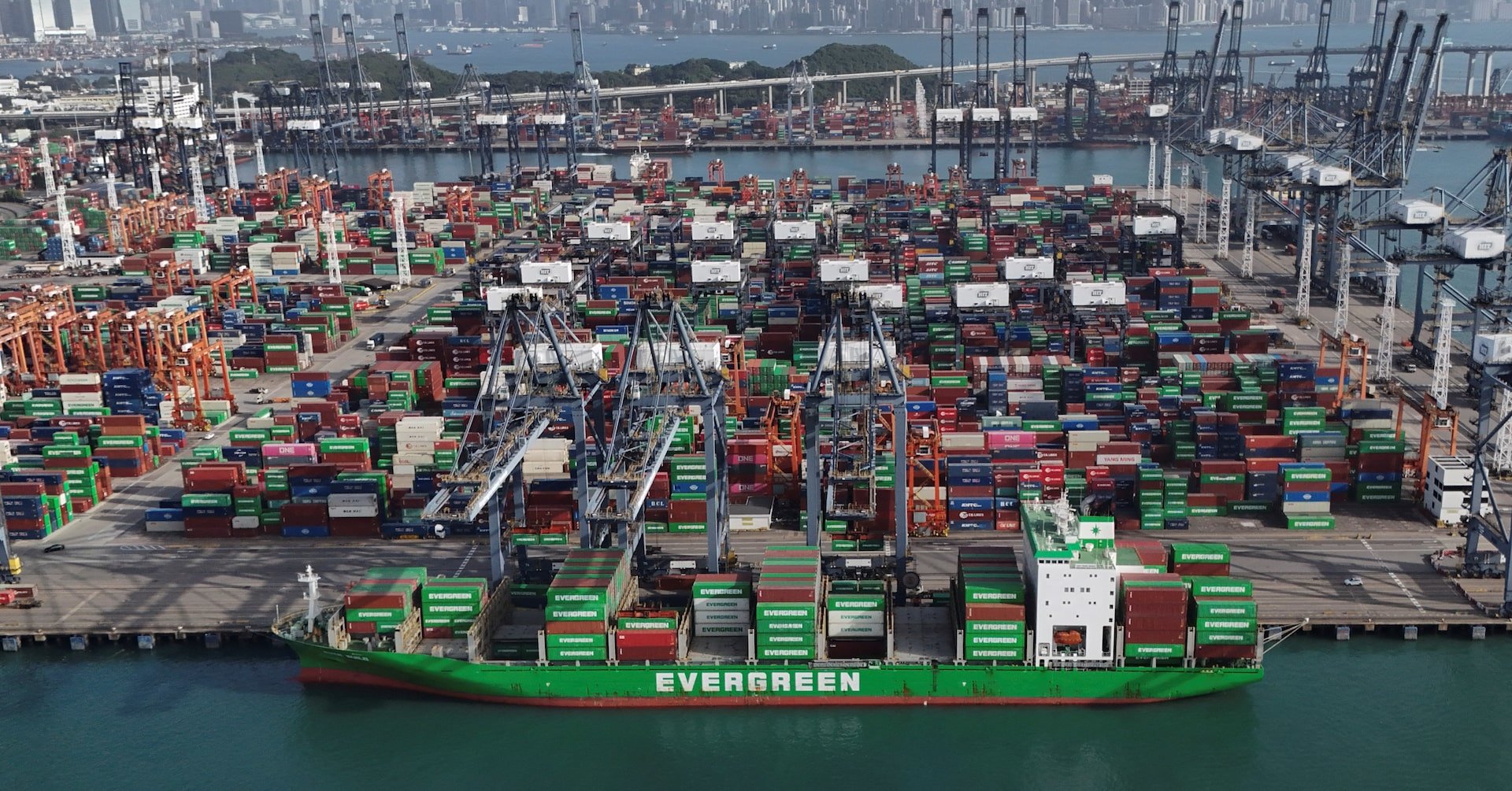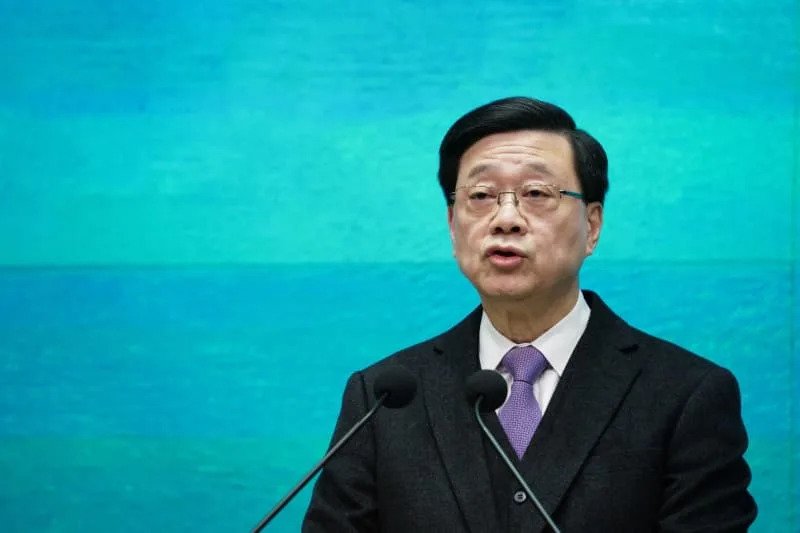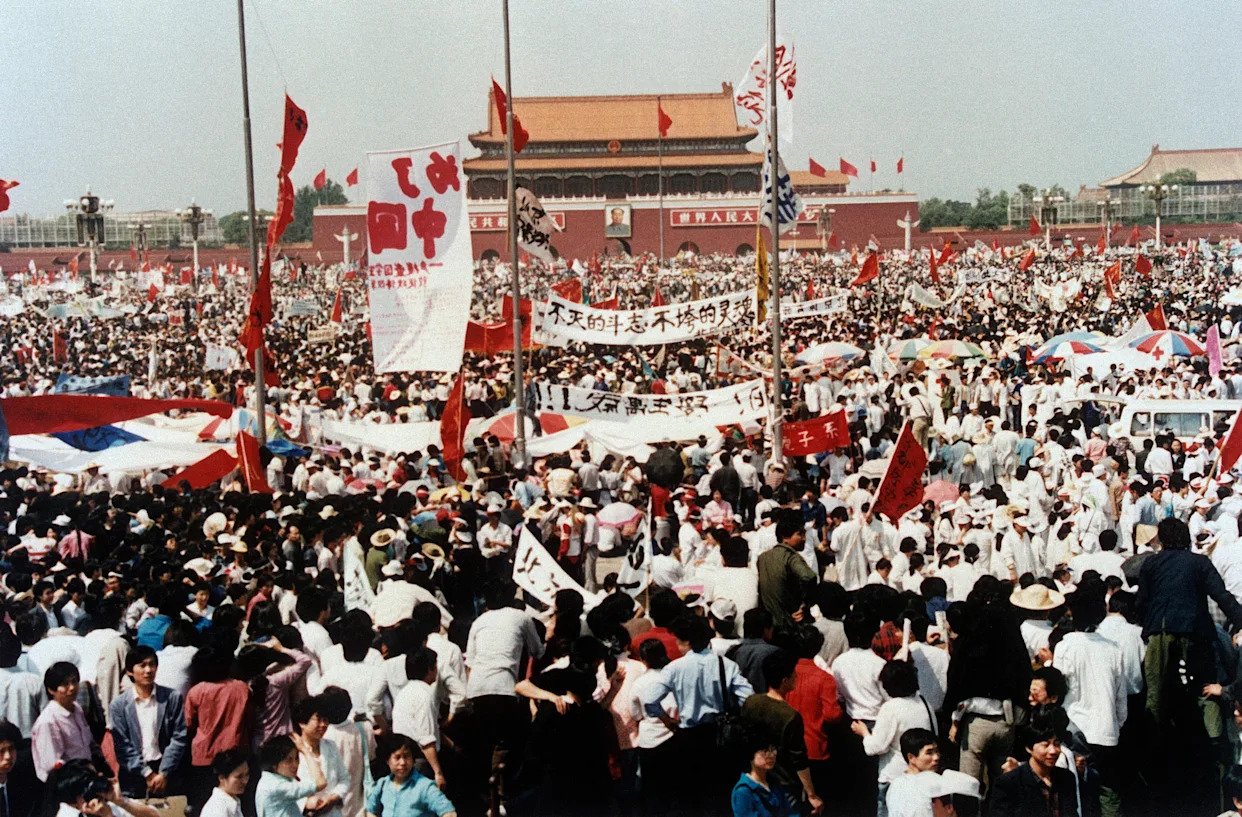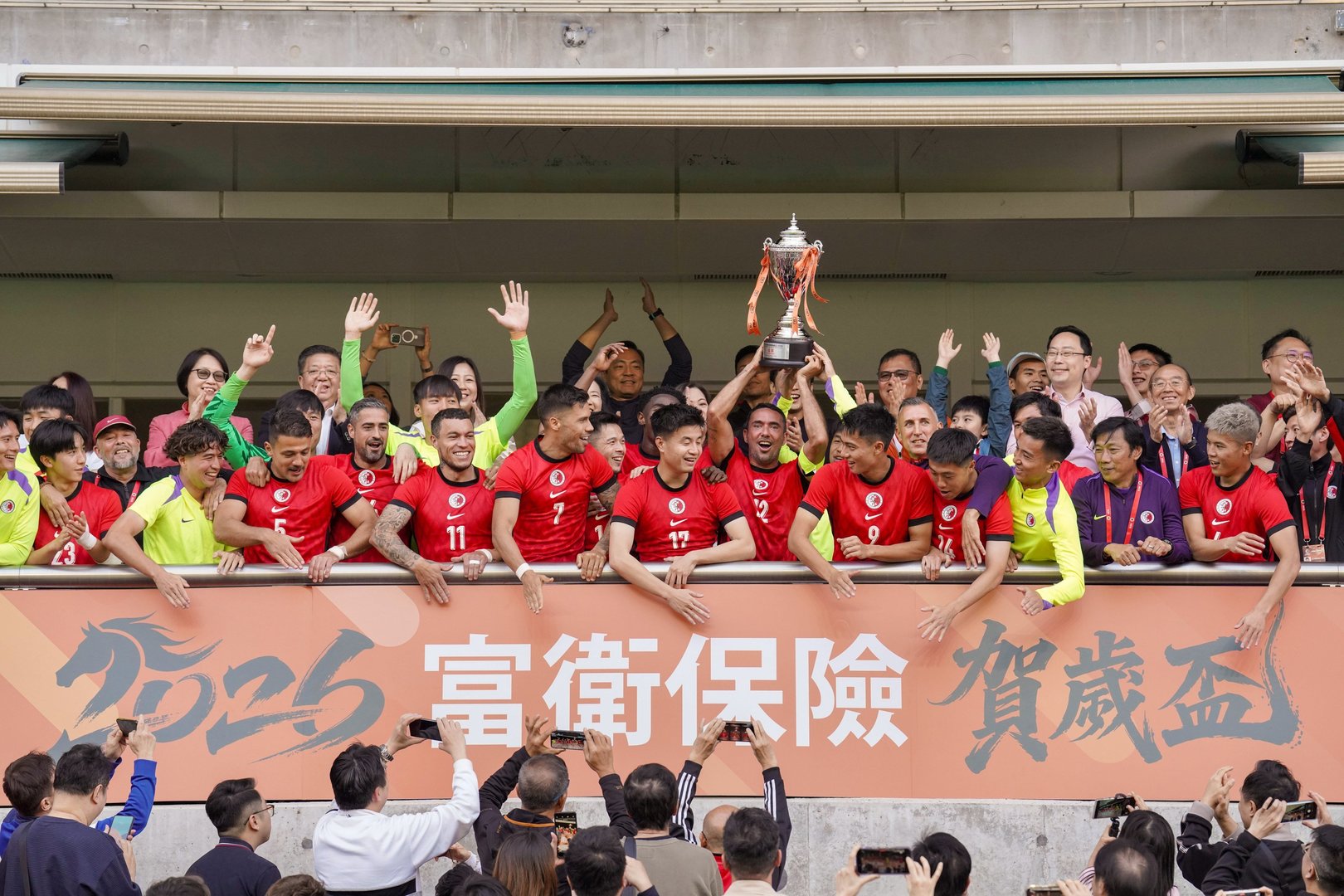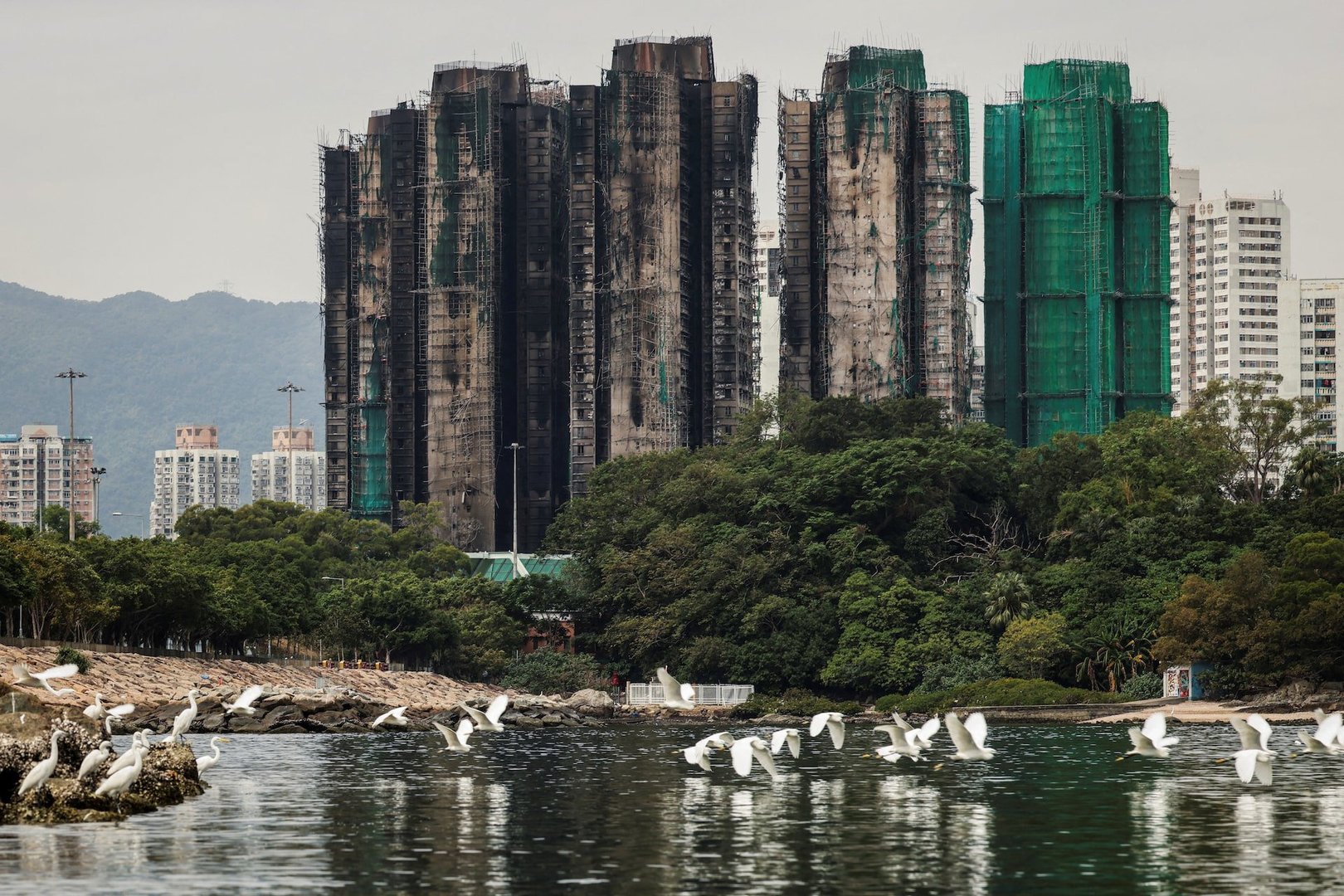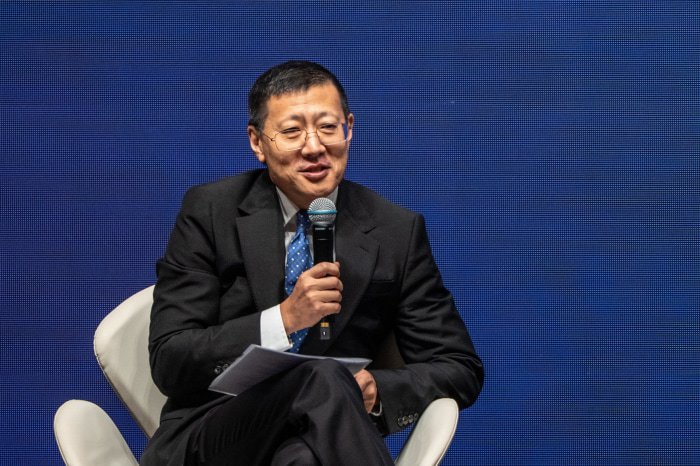
Two years after his historic general-election win, the most radical British prime minister since Margaret Thatcher is scandal-plagued, unpopular, and adrift.
By April 1968, Charles de Gaulle was bored. “None of this amuses me anymore,” the French president told his aide-de-camp, Admiral François Flohic. “There is no longer anything difficult or heroic to do.” Over the previous decade, de Gaulle had returned from political exile to save the country from military insurrection, killed off the Fourth Republic, created the Fifth, ended the creeping civil war over Algeria and negotiated its independence, vetoed Britain’s application to join the European Common Market, withdrew France from NATO’s joint command, and declared, “Vive le Québec libre!” The prospect of plodding bureaucratic management was not going to cut it.
Within three weeks, France exploded into a revolution that came close to toppling de Gaulle and forced him to call new elections. Within a year he was gone, and within two he was dead. History, like bankruptcy, can happen slowly and then all at once.
Britain today has a similar sense of inertia, with rumblings of serious trouble in the background. Brexit has been done (sort of). The British economy is rebounding from the pandemic recession. The threat of Scottish secession has, at least for the moment, receded. Even Northern Ireland is eerily calm, despite the warnings of imminent collapse. Yet in place of these grand crises, Johnson finds himself dealing with the tawdry and the toxic—a series of self-inflicted scandals that are bogging him down—just as COVID rears back into view.
This is the paradoxical challenge facing the British prime minister today, two years on from his era-defining general-election victory. Having achieved Brexit, the main thing he set out to do, a question arises: What, now, is the point of Boris Johnson?
With his election in 2019, Johnson remade Britain. He sought a mandate from the country to end the paralysis prompted by the 2016 European Union referendum and was given it, redrawing Britain’s political map in the process. With that victory alone, Johnson rose up the ranks of Britain’s postwar prime ministers to become one of—if not the—most consequential, rivaled only by Margaret Thatcher, Clement Attlee, Tony Blair, and, perhaps more aptly, Edward Heath, the man who took Britain into what was then the European Economic Community (more on him later). None of that is to say Johnson is a good prime minister (not even his closest allies would suggest that right now), merely an important one.
Brexit, his singular feat, was accomplished at 11 p.m. on January 31, 2020—less than two months after his election and with four years to go before the next one is due. Then, before he could turn to anything else, the pandemic hit.
Over the next two years, Johnson would divorce his second wife, almost die from COVID, have a baby, marry for a third time, oversee one of the most catastrophic responses to the pandemic in the Western world—only to then oversee one of its most successful vaccination programs—soar to record poll leads, irreparably fall out with his most important aide, raise taxes to their highest level since the 1950s (breaking a campaign promise not to do so), host the G7 and the United Nations climate-change conference, and have another baby, his seventh (known) child.
And then, when everything seemed to calm down and, in theory, he could finally turn to his domestic agenda, his political problems began to pile up. And he had only himself to blame.
As de Gaulle’s political career was ending in April 1969, the main speculation in London was whether the British prime minister at the time, the Labour leader Harold Wilson, could survive much longer himself. Wilson, a twice-elected leader with a wider public appeal than his party, had been forced to devalue the pound in November 1967 in what amounted to a humiliating reversal of his economic plan. His poll ratings slumped and he came under intense pressure from members of his own party in Parliament, who feared he was steering them toward disaster in the next election. But then the economy turned a corner, his numbers began to climb, and the pressure lifted.
The author of the most esteemed biography of Wilson, Ben Pimlott, used this episode to illustrate what he calls the “iron law” of British politics: “A prime minister whose poll ratings show him (or her) to be failing as a populist leader, automatically comes under pressure. Conversely, a premier who succeeds in opinion poll terms is almost impossible to challenge.”
More than 50 years later, this iron law still holds. In the first few months after Johnson’s election, with Brexit enacted and the government locked in its battle to contain COVID, the Conservative Party enjoyed huge poll leads over Labour, as high as 21 percent in April 2020. From here, however, as the scale of Britain’s failure in the first wave became clear and the second wave began to roll across the country, the Tory lead steadily narrowed until it was essentially tied with Labour over the bleak COVID winter of 2020–21. It looked as though the pandemic had cost Johnson his honeymoon period, when prime ministers have the momentum to get things done.
Then Britain’s vaccine program kicked into gear. Initially the U.K. pulled ahead of almost every other country in the world, and Johnson reaped the rewards. From January to June, just before the prime minister removed most COVID restrictions, the Conservative Party’s lead steadily grew, nearly reaching levels last seen at the very beginning of Johnson’s post-election popularity. During this period Johnson seemed untouchable, even taking a seat off Labour in one of its electoral heartlands in an unscheduled election following the resignation of a sitting Labour lawmaker. Suddenly (and rather aptly), Johnson was enjoying a second honeymoon.
Since then, however, as the memory of the vaccine success faded, the gap between the two parties has once again steadily narrowed, disappearing into statistical insignificance in recent weeks. At the same time, Johnson’s personal ratings have plunged as well. And lo, just as the iron law decrees, Johnson now finds himself under the most intense spell of political pressure since the election, with hostile briefings dripping into the press from Conservative members of Parliament and government officials alongside speculation about rivals for leadership and damaging leaks about his behavior during the pandemic. He has lost his mojo, some say; he doesn’t know what he’s doing; the joke is not funny anymore; he hasn’t got a plan; he’s just not fit, morally or administratively, to do the job
In this telling, Johnson was supposed to have hit his nadir over the past few weeks. First, he inadvertently sparked a political storm over Conservative Party corruption by trying to retrospectively rewrite the rules governing the propriety of MPs. This came after one of his own lawmakers was found to have lobbied the government on behalf of companies that paid him hundreds of thousands of pounds for work outside his job as a parliamentarian. After a public outcry and days of damaging press reports about the outside earnings of other MPs, Johnson backtracked and apologized. He was then filmed losing his place in a speech, repeatedly mumbling “Sorry” before veering off into a strange segue about the children’s TV character Peppa Pig. Now the prime minister is accused of hosting parties at 10 Downing Street over Christmas 2020, while the rest of the country was locked down. This last scandal risks becoming emblematic of his chaotic dishonesty.
He has lost control of the narrative, buffeted by scandals of his own making, and his personal poll ratings have plummeted to their worst on record, with just 24 percent of the public favorable toward Johnson, and 51 percent unfavorable. For Johnson, such a precipitous fall in popularity is particularly dangerous because, like Wilson, “his selling-point among colleagues had always been his mass appeal,” as Pimlott notes. Johnson wasn’t necessarily the most popular candidate among Conservative MPs when he became leader in 2019, but he was their last, best chance to stop the hemorrhaging of support to the new Brexit Party created by Nigel Farage, the populist ally of Donald Trump. This new party had surged in the polls amid the public’s frustration at the impasse in Parliament and was threatening the Tories’ grip on power. Theresa May’s failure had left the Conservatives facing defeat in the next election to a Labour government committed to holding a second referendum on Brexit, which could undo the first. Johnson was the tool they needed to destroy the Brexit Party and retain power.
Johnson’s extraordinary success in doing so made him the most powerful prime minister since Tony Blair. But if Johnson was a tool used by the Conservative Party to do a particular job, what happens when that job is complete—and the tool shows signs of not being versatile enough for the new tasks at hand?
Johnson’s admirers, or at least those with a vested interest in him remaining in power, like to say this is just a mid-season wobble that every government suffers.
Certainly in recent years this rule has held true. Blair endured rough patches in the polls and major midterm crises concerning protests over gas prices, the outbreak of foot and mouth disease, public-service reform, and, of course, Iraq. Thatcher also went through troughs, only to rebound before her three elections. David Cameron, too, dipped in popularity before claiming victory.
What’s more, while Johnson’s popularity is clearly on the slide—and may yet slip much further given the ongoing revelations about the party at 10 Downing Street and the threat of Omicron sweeping Britain this winter—it is not (yet) clear he has suffered an era-defining calamity of the sort that has proved fatal to many of his predecessors. Johnson’s missteps, gaffes, and lies have all been damaging, and may already have developed into a disqualifying picture of chaos for many voters, but none on its own has yet proved irredeemable (though, perhaps, this latest scandal will become so).
Almost all British prime ministers since the Second World War have suffered such a blow. For Anthony Eden, it was the Suez crisis; for Harold Macmillan, the Profumo sex scandal; for Wilson, the devaluation of the pound; for Heath, defeat in the miners’ strike; for James Callaghan, the “winter of discontent.” Later in the century, John Major did not recover from “Black Wednesday,” nor Blair from Iraq (although this was shrouded by his reelection victory in 2005). Neither did Gordon Brown from the election that never was, Cameron from the referendum gamble that backfired, nor May from the snap election that cost her the majority she inherited. Britain’s postwar political history is largely a story of political failure.
The only exception, really, is Margaret Thatcher, whose record is fiercely disputed in terms of whether it was good or bad for the country, but not whether it was profoundly consequential or largely successful on its own terms. Thatcher identified various enemies—socialism, inflation, the Soviet Union—and what she thought was needed to tackle them: capitalism, monetarism, strength. And although it is a myth that the lady did not turn when political necessity required, there was a consistency of purpose to her mission.
For Johnson, then, there is hope, but also a warning. The hope is that, as the former Downing Street pollster James Johnson told me, voters still see him as a man who gets things done, even though they are becoming more and more frustrated with his antics. The warning, though, is that even if he has not (yet) suffered a single defining humiliation that undermines the essence of what his government was elected to do, it may be only a matter of time, and history suggests that such setbacks are hard to overcome without a clear strategy that allows them to be explained within a wider and triumphant narrative. It is when prime ministers fail on their own terms—or are seen to have abandoned their core purpose—that they are really in trouble.
In May 1958, France was teetering on the edge of anarchy. A military insurrection against the last government of the Fourth Republic was under way, caused by differences in how to handle Algerian demands for independence. From abroad, France looked as though it might become another Spain or Portugal, both then ruled by military dictatorship.
This was the moment General de Gaulle had been waiting for ever since resigning from the government in 1946—the call to save the nation. Many of France’s politicians had been reluctant to enlist the great man, fearful that his authoritarianism presented a threat to democracy. De Gaulle himself had spoken of wanting his own 18 Brumaire, in reference to the coup of 1799 that brought Napoleon to power. In the end, the crisis was so grave that the call was made.
In Julian Jackson’s biography of de Gaulle, he writes that “in 1799, as in 1958, French political elites had lost faith in the political system.” The first six months of de Gaulle’s return, in Jackson’s words, “had the same sense of purpose and energy as the first months of the Consulate of Napoleon.” During this time, de Gaulle drafted a new constitution, implemented a new financial plan, and launched several foreign-policy initiatives as well as a “legislative frenzy” touching areas as diverse as social-security change, wheat prices, flood relief, juvenile delinquency, and the highway code. Some of the reforms had been languishing in the desks of civil servants for years. De Gaulle’s authority, granted in extremis, was what allowed them to sail through.
This post-revolutionary frenzy served its purpose, gripping a system that had come close to anarchy and driving it forward to deal with the reasons it was threatened in the first place.
Having stabilized the nation, de Gaulle then set about restoring French grandeur, or in his words, giving back to France “her purpose, her rank and her universal vocation.” This could mean many conflicting things—and did—but was rooted in leadership, strength, and independence. The nation had a mission again.
Today, it is clear that Johnson has had his revolution, but far from clear that he has the grip, the determination, or the ideological clarity to define what it was all for. When I spent time with him earlier in the year, Johnson seemed to have an answer to this question. It was, he said, to “unite and level up” the country and become “global.” These were shorthand slogans for putting Britain’s Brexit civil war to bed, avoiding Scottish secession, and bringing to the rest of the country the kind of prosperity enjoyed in London and the southeast.
The central idea was that Britain needed to be more cohesive and economically dynamic at home to increase its influence on the world stage—and vice versa. This agenda served two immediate purposes: First, it was electorally popular among voters in traditionally Labour regions that had backed Johnson in 2019, and second, it seemed to address a deeper frustration with the status quo expressed in the EU referendum.
Longer term, it also gave Johnsonism a meaning, a way to fit emerging challenges into this overarching strategy. An example of this working in practice is the ongoing diplomatic spat with the EU over the future of Northern Ireland, which can be explained (fairly or not) as part of the government’s wider policy of national cohesion. Another example came in the fall, when Johnson used a series of pandemic- and Brexit-related crises to put some meat on the bones of his economic agenda. Rejecting calls to liberalize Britain’s immigration rules to allow more EU workers into the country to ease supply-chain problems, Johnson instead said he wanted to see Britain turn into a high-wage, high-productivity economy, open to the brightest and best talent from around the world but less reliant on the cheap, “low skilled” labor that had become a source of public disquiet in the run-up to the Brexit referendum. Here was a policy with obvious short-term costs for businesses and consumer prices, but apparent long-game benefits that could be packaged and sold politically. The impact of Brexit, in this telling, would accrue over time—so long as the government stuck to its guns.
The problem is, no serious economist believes that such a high-wage economy will magically emerge without significant structural reform. Indeed, most believe that such a prospect has been made harder by Britain’s withdrawal from the EU’s single market. Either way, both Johnson and the Labour Party agree that Britain’s economy requires fundamental change, irrespective of Brexit, if it is to answer the demands of those who voted for revolution in 2016 and again in 2019. The question is how?
When Johnson and I chatted, he told me that the most shocking thing he’d been shown as prime minister was a map created by the management consultancy firm McKinsey detailing the different levels of wealth across the country. The analysis showed how much the country’s prosperity was centered on London and the southeast—and that it was getting worse. Johnson believed the scale of the economic division was affecting Britain’s ability to act as one.
But what have his policies to narrow the wealth gap amounted to since then? Britain’s regional divide is akin to that of East and West Germany at the end of the Cold War, which required extraordinary investment to address. Johnson, though, has tackled Britain’s divide with a smattering of extra investment in trains and buses in the north of England (alongside cuts to one leg of a proposed high-speed train line) and the creation of government agencies outside London. There’s little that hangs it all together, and it’s all a bit, well, meh.
Such policies will do nothing to change the extraordinary domination of the southeast. The region is home to Britain’s only international-hub airport, Heathrow; its political, administrative, and financial centers; both of its best universities; all of its principal museums; its train connections to the continent; and its media and film industries. Perhaps the only core asset outside the southeast is Britain’s Trident nuclear submarines, which are based in Scotland.
No one has seriously suggested that any of these structural assets should be moved north. Heathrow is now Britain’s port, but when Johnson proposed relocating it, it was to another site near London, not, say, Birmingham. No one in the government has floated moving the government machine en masse to Glasgow, or even the British Museum to Manchester. It’s all done in dribs and drabs, controlled, as ever, by the might of the Treasury, which has spent much of the past 40 years offering solutions to the north-south divide without making a dent. At the moment, Brexit looks like an enormous change so that everything important stays the same.
In some ways, it is unreasonable to weigh all British governments against Thatcher’s, which really is an outlier in having a clear mission as well as a diagnosis of what had gone wrong, what was required to fix it, and symbolic policies to make sense of it. Nor, it should be said, did Thatcher have a once-in-a-century pandemic to tackle before turning back to her domestic agenda (though she did have a war).
Most governments just muddle along, making small adjustments and managing challenges as they present themselves. In many ways, that is what conservatism is supposed to be about.
A quick look back to Johnson’s election victory suggests he was never proposing much of a radical transformation after Brexit to begin with. Yes, he asked for—and received—a mandate to “Get Brexit done,” but this was in large part about ending the chaos that had gripped the country for the previous three years.
In 2019, Johnson had learned the lesson of his predecessor Theresa May’s disastrous 2017 campaign, which seemed to frighten the horses by spelling out too honestly what kind of reforms she felt were necessary. The most infamous example was the so-called dementia tax, which was meant to overhaul the way old-age care was funded by the state in an attempt to make it fairer, but which made it much more expensive for some people whose conditions—like dementia—were usually treated at home. In the face of a PR disaster, May U-turned on the policy, undermining support not only for a Conservative majority—which she wanted to be able to get Brexit done—but also for the central claim of her campaign: that she offered “strong and stable” leadership.
Two years later, Johnson made the same offer to the country as May—an end to Britain’s membership in the EU and an end to austerity—but without any of the downsides that alienated voters. He proposed no major changes to the size of the state, or to public services, taxes, and spending—and no detail on old-age care other than a pledge that no one would have to sell their home to pay for it. (Once Johnson had his majority, he passed his own reform on old-age care that meant some people would have to sell their home to pay for care.)
Johnson’s “unite and level up” agenda fits this narrative well. It is not about the redistribution of wealth or assets from one part of the country to the other, but a supposedly painless process in which one area magically overcomes its structural disadvantages without the other area having to make any sacrifices. This might be smart politics, but it does not suggest serious intent to change the fundamental reality of the British economy.
When I spoke with Blair about Johnson’s bid to revolutionize the country as Thatcher did, he was dismissive. “She took eye-wateringly difficult decisions to do that,” he told me. “She didn’t succeed by boosterism; she succeeded by reform. That, I’m afraid, is the thing.” Blair questioned whether Johnson had a coherent philosophy that would allow for such difficult decisions to take place. “Where’s the big bet on education reform? On health-service reform? In the end, it’s about doing stuff. The one definite thing he’s done so far at least is Brexit, but let’s see. It’s too early to make a final judgment.”
Perhaps Johnson is wise to avoid such difficult decisions. Perhaps London and the southeast should be left as it is and the rest of the country simply better connected to it with improved transport, technology, and the like. Perhaps this is leveling up. Perhaps Britain has had enough radicalism. In fact, perhaps incremental, ad hoc governance without a grand strategy, vision, or ideology is just what the country wants and needs. After all, this approach worked pretty well for Angela Merkel and Germany for the past 16 years. Little changed, but the country got richer.
There are ways of being consequential other than through sustained ideological revolution, but Johnson is no Merkel. By taking Britain into the European Economic Community in 1972, Thatcher’s predecessor as Conservative leader, Edward Heath, transformed the country, leaving a legacy that outlasted his successor’s, even though on almost every other measure he was a disastrous prime minister, buffeted by events and dumped at the first opportunity by the electorate. Perhaps Johnson will be a Heath, not a Thatcher: revolutionary in one specific sense but generally ineffective (or worse), unable to rise above his essential chaotic self.
During my conversations with Johnson earlier in the year, we got on to which books he’d been reading. As well as the two James Shapiro books about Shakespeare, he told me he’d recently read F. Scott Fitzgerald’s Tender Is the Night, which he described as being about a man who had all the superficial charm but threw away his success. Was he trying to tell me something?
De Gaulle was once asked to assess his career and its greatest successes and failures. He replied that in reality, any career required both. “Life is combat,” he said, “and therefore each one of its phases includes both successes and failures. And you cannot really say which event was a success and which event was a failure.” He then added: “Success contains within it the germs of failure and the reverse is true.” Today, Johnson’s success—such as it was—is that he secured Brexit. Yet this success contains within it the germs of his current failure, because without that existential combat he has yet to really identify how to fight the next battle, leaving himself exposed to the tide of events and scandals caused by his carelessness.
Maybe he never will. But without such clarity, his problem will not be that he gets bored with the job, like de Gaulle in the spring of 1968, but that the country will get bored with his inability to do it—and that history will speed past him before he has figured it out.
Within three weeks, France exploded into a revolution that came close to toppling de Gaulle and forced him to call new elections. Within a year he was gone, and within two he was dead. History, like bankruptcy, can happen slowly and then all at once.
Britain today has a similar sense of inertia, with rumblings of serious trouble in the background. Brexit has been done (sort of). The British economy is rebounding from the pandemic recession. The threat of Scottish secession has, at least for the moment, receded. Even Northern Ireland is eerily calm, despite the warnings of imminent collapse. Yet in place of these grand crises, Johnson finds himself dealing with the tawdry and the toxic—a series of self-inflicted scandals that are bogging him down—just as COVID rears back into view.
This is the paradoxical challenge facing the British prime minister today, two years on from his era-defining general-election victory. Having achieved Brexit, the main thing he set out to do, a question arises: What, now, is the point of Boris Johnson?
With his election in 2019, Johnson remade Britain. He sought a mandate from the country to end the paralysis prompted by the 2016 European Union referendum and was given it, redrawing Britain’s political map in the process. With that victory alone, Johnson rose up the ranks of Britain’s postwar prime ministers to become one of—if not the—most consequential, rivaled only by Margaret Thatcher, Clement Attlee, Tony Blair, and, perhaps more aptly, Edward Heath, the man who took Britain into what was then the European Economic Community (more on him later). None of that is to say Johnson is a good prime minister (not even his closest allies would suggest that right now), merely an important one.
Brexit, his singular feat, was accomplished at 11 p.m. on January 31, 2020—less than two months after his election and with four years to go before the next one is due. Then, before he could turn to anything else, the pandemic hit.
Over the next two years, Johnson would divorce his second wife, almost die from COVID, have a baby, marry for a third time, oversee one of the most catastrophic responses to the pandemic in the Western world—only to then oversee one of its most successful vaccination programs—soar to record poll leads, irreparably fall out with his most important aide, raise taxes to their highest level since the 1950s (breaking a campaign promise not to do so), host the G7 and the United Nations climate-change conference, and have another baby, his seventh (known) child.
And then, when everything seemed to calm down and, in theory, he could finally turn to his domestic agenda, his political problems began to pile up. And he had only himself to blame.
As de Gaulle’s political career was ending in April 1969, the main speculation in London was whether the British prime minister at the time, the Labour leader Harold Wilson, could survive much longer himself. Wilson, a twice-elected leader with a wider public appeal than his party, had been forced to devalue the pound in November 1967 in what amounted to a humiliating reversal of his economic plan. His poll ratings slumped and he came under intense pressure from members of his own party in Parliament, who feared he was steering them toward disaster in the next election. But then the economy turned a corner, his numbers began to climb, and the pressure lifted.
The author of the most esteemed biography of Wilson, Ben Pimlott, used this episode to illustrate what he calls the “iron law” of British politics: “A prime minister whose poll ratings show him (or her) to be failing as a populist leader, automatically comes under pressure. Conversely, a premier who succeeds in opinion poll terms is almost impossible to challenge.”
More than 50 years later, this iron law still holds. In the first few months after Johnson’s election, with Brexit enacted and the government locked in its battle to contain COVID, the Conservative Party enjoyed huge poll leads over Labour, as high as 21 percent in April 2020. From here, however, as the scale of Britain’s failure in the first wave became clear and the second wave began to roll across the country, the Tory lead steadily narrowed until it was essentially tied with Labour over the bleak COVID winter of 2020–21. It looked as though the pandemic had cost Johnson his honeymoon period, when prime ministers have the momentum to get things done.
Then Britain’s vaccine program kicked into gear. Initially the U.K. pulled ahead of almost every other country in the world, and Johnson reaped the rewards. From January to June, just before the prime minister removed most COVID restrictions, the Conservative Party’s lead steadily grew, nearly reaching levels last seen at the very beginning of Johnson’s post-election popularity. During this period Johnson seemed untouchable, even taking a seat off Labour in one of its electoral heartlands in an unscheduled election following the resignation of a sitting Labour lawmaker. Suddenly (and rather aptly), Johnson was enjoying a second honeymoon.
Since then, however, as the memory of the vaccine success faded, the gap between the two parties has once again steadily narrowed, disappearing into statistical insignificance in recent weeks. At the same time, Johnson’s personal ratings have plunged as well. And lo, just as the iron law decrees, Johnson now finds himself under the most intense spell of political pressure since the election, with hostile briefings dripping into the press from Conservative members of Parliament and government officials alongside speculation about rivals for leadership and damaging leaks about his behavior during the pandemic. He has lost his mojo, some say; he doesn’t know what he’s doing; the joke is not funny anymore; he hasn’t got a plan; he’s just not fit, morally or administratively, to do the job
In this telling, Johnson was supposed to have hit his nadir over the past few weeks. First, he inadvertently sparked a political storm over Conservative Party corruption by trying to retrospectively rewrite the rules governing the propriety of MPs. This came after one of his own lawmakers was found to have lobbied the government on behalf of companies that paid him hundreds of thousands of pounds for work outside his job as a parliamentarian. After a public outcry and days of damaging press reports about the outside earnings of other MPs, Johnson backtracked and apologized. He was then filmed losing his place in a speech, repeatedly mumbling “Sorry” before veering off into a strange segue about the children’s TV character Peppa Pig. Now the prime minister is accused of hosting parties at 10 Downing Street over Christmas 2020, while the rest of the country was locked down. This last scandal risks becoming emblematic of his chaotic dishonesty.
He has lost control of the narrative, buffeted by scandals of his own making, and his personal poll ratings have plummeted to their worst on record, with just 24 percent of the public favorable toward Johnson, and 51 percent unfavorable. For Johnson, such a precipitous fall in popularity is particularly dangerous because, like Wilson, “his selling-point among colleagues had always been his mass appeal,” as Pimlott notes. Johnson wasn’t necessarily the most popular candidate among Conservative MPs when he became leader in 2019, but he was their last, best chance to stop the hemorrhaging of support to the new Brexit Party created by Nigel Farage, the populist ally of Donald Trump. This new party had surged in the polls amid the public’s frustration at the impasse in Parliament and was threatening the Tories’ grip on power. Theresa May’s failure had left the Conservatives facing defeat in the next election to a Labour government committed to holding a second referendum on Brexit, which could undo the first. Johnson was the tool they needed to destroy the Brexit Party and retain power.
Johnson’s extraordinary success in doing so made him the most powerful prime minister since Tony Blair. But if Johnson was a tool used by the Conservative Party to do a particular job, what happens when that job is complete—and the tool shows signs of not being versatile enough for the new tasks at hand?
Johnson’s admirers, or at least those with a vested interest in him remaining in power, like to say this is just a mid-season wobble that every government suffers.
Certainly in recent years this rule has held true. Blair endured rough patches in the polls and major midterm crises concerning protests over gas prices, the outbreak of foot and mouth disease, public-service reform, and, of course, Iraq. Thatcher also went through troughs, only to rebound before her three elections. David Cameron, too, dipped in popularity before claiming victory.
What’s more, while Johnson’s popularity is clearly on the slide—and may yet slip much further given the ongoing revelations about the party at 10 Downing Street and the threat of Omicron sweeping Britain this winter—it is not (yet) clear he has suffered an era-defining calamity of the sort that has proved fatal to many of his predecessors. Johnson’s missteps, gaffes, and lies have all been damaging, and may already have developed into a disqualifying picture of chaos for many voters, but none on its own has yet proved irredeemable (though, perhaps, this latest scandal will become so).
Almost all British prime ministers since the Second World War have suffered such a blow. For Anthony Eden, it was the Suez crisis; for Harold Macmillan, the Profumo sex scandal; for Wilson, the devaluation of the pound; for Heath, defeat in the miners’ strike; for James Callaghan, the “winter of discontent.” Later in the century, John Major did not recover from “Black Wednesday,” nor Blair from Iraq (although this was shrouded by his reelection victory in 2005). Neither did Gordon Brown from the election that never was, Cameron from the referendum gamble that backfired, nor May from the snap election that cost her the majority she inherited. Britain’s postwar political history is largely a story of political failure.
The only exception, really, is Margaret Thatcher, whose record is fiercely disputed in terms of whether it was good or bad for the country, but not whether it was profoundly consequential or largely successful on its own terms. Thatcher identified various enemies—socialism, inflation, the Soviet Union—and what she thought was needed to tackle them: capitalism, monetarism, strength. And although it is a myth that the lady did not turn when political necessity required, there was a consistency of purpose to her mission.
For Johnson, then, there is hope, but also a warning. The hope is that, as the former Downing Street pollster James Johnson told me, voters still see him as a man who gets things done, even though they are becoming more and more frustrated with his antics. The warning, though, is that even if he has not (yet) suffered a single defining humiliation that undermines the essence of what his government was elected to do, it may be only a matter of time, and history suggests that such setbacks are hard to overcome without a clear strategy that allows them to be explained within a wider and triumphant narrative. It is when prime ministers fail on their own terms—or are seen to have abandoned their core purpose—that they are really in trouble.
In May 1958, France was teetering on the edge of anarchy. A military insurrection against the last government of the Fourth Republic was under way, caused by differences in how to handle Algerian demands for independence. From abroad, France looked as though it might become another Spain or Portugal, both then ruled by military dictatorship.
This was the moment General de Gaulle had been waiting for ever since resigning from the government in 1946—the call to save the nation. Many of France’s politicians had been reluctant to enlist the great man, fearful that his authoritarianism presented a threat to democracy. De Gaulle himself had spoken of wanting his own 18 Brumaire, in reference to the coup of 1799 that brought Napoleon to power. In the end, the crisis was so grave that the call was made.
In Julian Jackson’s biography of de Gaulle, he writes that “in 1799, as in 1958, French political elites had lost faith in the political system.” The first six months of de Gaulle’s return, in Jackson’s words, “had the same sense of purpose and energy as the first months of the Consulate of Napoleon.” During this time, de Gaulle drafted a new constitution, implemented a new financial plan, and launched several foreign-policy initiatives as well as a “legislative frenzy” touching areas as diverse as social-security change, wheat prices, flood relief, juvenile delinquency, and the highway code. Some of the reforms had been languishing in the desks of civil servants for years. De Gaulle’s authority, granted in extremis, was what allowed them to sail through.
This post-revolutionary frenzy served its purpose, gripping a system that had come close to anarchy and driving it forward to deal with the reasons it was threatened in the first place.
Having stabilized the nation, de Gaulle then set about restoring French grandeur, or in his words, giving back to France “her purpose, her rank and her universal vocation.” This could mean many conflicting things—and did—but was rooted in leadership, strength, and independence. The nation had a mission again.
Today, it is clear that Johnson has had his revolution, but far from clear that he has the grip, the determination, or the ideological clarity to define what it was all for. When I spent time with him earlier in the year, Johnson seemed to have an answer to this question. It was, he said, to “unite and level up” the country and become “global.” These were shorthand slogans for putting Britain’s Brexit civil war to bed, avoiding Scottish secession, and bringing to the rest of the country the kind of prosperity enjoyed in London and the southeast.
The central idea was that Britain needed to be more cohesive and economically dynamic at home to increase its influence on the world stage—and vice versa. This agenda served two immediate purposes: First, it was electorally popular among voters in traditionally Labour regions that had backed Johnson in 2019, and second, it seemed to address a deeper frustration with the status quo expressed in the EU referendum.
Longer term, it also gave Johnsonism a meaning, a way to fit emerging challenges into this overarching strategy. An example of this working in practice is the ongoing diplomatic spat with the EU over the future of Northern Ireland, which can be explained (fairly or not) as part of the government’s wider policy of national cohesion. Another example came in the fall, when Johnson used a series of pandemic- and Brexit-related crises to put some meat on the bones of his economic agenda. Rejecting calls to liberalize Britain’s immigration rules to allow more EU workers into the country to ease supply-chain problems, Johnson instead said he wanted to see Britain turn into a high-wage, high-productivity economy, open to the brightest and best talent from around the world but less reliant on the cheap, “low skilled” labor that had become a source of public disquiet in the run-up to the Brexit referendum. Here was a policy with obvious short-term costs for businesses and consumer prices, but apparent long-game benefits that could be packaged and sold politically. The impact of Brexit, in this telling, would accrue over time—so long as the government stuck to its guns.
The problem is, no serious economist believes that such a high-wage economy will magically emerge without significant structural reform. Indeed, most believe that such a prospect has been made harder by Britain’s withdrawal from the EU’s single market. Either way, both Johnson and the Labour Party agree that Britain’s economy requires fundamental change, irrespective of Brexit, if it is to answer the demands of those who voted for revolution in 2016 and again in 2019. The question is how?
When Johnson and I chatted, he told me that the most shocking thing he’d been shown as prime minister was a map created by the management consultancy firm McKinsey detailing the different levels of wealth across the country. The analysis showed how much the country’s prosperity was centered on London and the southeast—and that it was getting worse. Johnson believed the scale of the economic division was affecting Britain’s ability to act as one.
But what have his policies to narrow the wealth gap amounted to since then? Britain’s regional divide is akin to that of East and West Germany at the end of the Cold War, which required extraordinary investment to address. Johnson, though, has tackled Britain’s divide with a smattering of extra investment in trains and buses in the north of England (alongside cuts to one leg of a proposed high-speed train line) and the creation of government agencies outside London. There’s little that hangs it all together, and it’s all a bit, well, meh.
Such policies will do nothing to change the extraordinary domination of the southeast. The region is home to Britain’s only international-hub airport, Heathrow; its political, administrative, and financial centers; both of its best universities; all of its principal museums; its train connections to the continent; and its media and film industries. Perhaps the only core asset outside the southeast is Britain’s Trident nuclear submarines, which are based in Scotland.
No one has seriously suggested that any of these structural assets should be moved north. Heathrow is now Britain’s port, but when Johnson proposed relocating it, it was to another site near London, not, say, Birmingham. No one in the government has floated moving the government machine en masse to Glasgow, or even the British Museum to Manchester. It’s all done in dribs and drabs, controlled, as ever, by the might of the Treasury, which has spent much of the past 40 years offering solutions to the north-south divide without making a dent. At the moment, Brexit looks like an enormous change so that everything important stays the same.
In some ways, it is unreasonable to weigh all British governments against Thatcher’s, which really is an outlier in having a clear mission as well as a diagnosis of what had gone wrong, what was required to fix it, and symbolic policies to make sense of it. Nor, it should be said, did Thatcher have a once-in-a-century pandemic to tackle before turning back to her domestic agenda (though she did have a war).
Most governments just muddle along, making small adjustments and managing challenges as they present themselves. In many ways, that is what conservatism is supposed to be about.
A quick look back to Johnson’s election victory suggests he was never proposing much of a radical transformation after Brexit to begin with. Yes, he asked for—and received—a mandate to “Get Brexit done,” but this was in large part about ending the chaos that had gripped the country for the previous three years.
In 2019, Johnson had learned the lesson of his predecessor Theresa May’s disastrous 2017 campaign, which seemed to frighten the horses by spelling out too honestly what kind of reforms she felt were necessary. The most infamous example was the so-called dementia tax, which was meant to overhaul the way old-age care was funded by the state in an attempt to make it fairer, but which made it much more expensive for some people whose conditions—like dementia—were usually treated at home. In the face of a PR disaster, May U-turned on the policy, undermining support not only for a Conservative majority—which she wanted to be able to get Brexit done—but also for the central claim of her campaign: that she offered “strong and stable” leadership.
Two years later, Johnson made the same offer to the country as May—an end to Britain’s membership in the EU and an end to austerity—but without any of the downsides that alienated voters. He proposed no major changes to the size of the state, or to public services, taxes, and spending—and no detail on old-age care other than a pledge that no one would have to sell their home to pay for it. (Once Johnson had his majority, he passed his own reform on old-age care that meant some people would have to sell their home to pay for care.)
Johnson’s “unite and level up” agenda fits this narrative well. It is not about the redistribution of wealth or assets from one part of the country to the other, but a supposedly painless process in which one area magically overcomes its structural disadvantages without the other area having to make any sacrifices. This might be smart politics, but it does not suggest serious intent to change the fundamental reality of the British economy.
When I spoke with Blair about Johnson’s bid to revolutionize the country as Thatcher did, he was dismissive. “She took eye-wateringly difficult decisions to do that,” he told me. “She didn’t succeed by boosterism; she succeeded by reform. That, I’m afraid, is the thing.” Blair questioned whether Johnson had a coherent philosophy that would allow for such difficult decisions to take place. “Where’s the big bet on education reform? On health-service reform? In the end, it’s about doing stuff. The one definite thing he’s done so far at least is Brexit, but let’s see. It’s too early to make a final judgment.”
Perhaps Johnson is wise to avoid such difficult decisions. Perhaps London and the southeast should be left as it is and the rest of the country simply better connected to it with improved transport, technology, and the like. Perhaps this is leveling up. Perhaps Britain has had enough radicalism. In fact, perhaps incremental, ad hoc governance without a grand strategy, vision, or ideology is just what the country wants and needs. After all, this approach worked pretty well for Angela Merkel and Germany for the past 16 years. Little changed, but the country got richer.
There are ways of being consequential other than through sustained ideological revolution, but Johnson is no Merkel. By taking Britain into the European Economic Community in 1972, Thatcher’s predecessor as Conservative leader, Edward Heath, transformed the country, leaving a legacy that outlasted his successor’s, even though on almost every other measure he was a disastrous prime minister, buffeted by events and dumped at the first opportunity by the electorate. Perhaps Johnson will be a Heath, not a Thatcher: revolutionary in one specific sense but generally ineffective (or worse), unable to rise above his essential chaotic self.
During my conversations with Johnson earlier in the year, we got on to which books he’d been reading. As well as the two James Shapiro books about Shakespeare, he told me he’d recently read F. Scott Fitzgerald’s Tender Is the Night, which he described as being about a man who had all the superficial charm but threw away his success. Was he trying to tell me something?
De Gaulle was once asked to assess his career and its greatest successes and failures. He replied that in reality, any career required both. “Life is combat,” he said, “and therefore each one of its phases includes both successes and failures. And you cannot really say which event was a success and which event was a failure.” He then added: “Success contains within it the germs of failure and the reverse is true.” Today, Johnson’s success—such as it was—is that he secured Brexit. Yet this success contains within it the germs of his current failure, because without that existential combat he has yet to really identify how to fight the next battle, leaving himself exposed to the tide of events and scandals caused by his carelessness.
Maybe he never will. But without such clarity, his problem will not be that he gets bored with the job, like de Gaulle in the spring of 1968, but that the country will get bored with his inability to do it—and that history will speed past him before he has figured it out.

